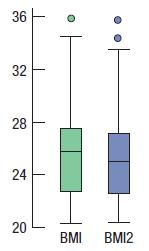A Harvard psychologist recruited 75 female hotel maids to participate in a study. She randomly selected 41
Question:
A Harvard psychologist recruited 75 female hotel maids to participate in a study. She randomly selected 41 and informed them (truthfully) that the work they do satisfies the Surgeon General’s recommendations for an active lifestyle, providing examples to show them that their work is good exercise. The other 34 maids were told nothing. Various characteristics of the maids, such as weight, body fat, body mass index, and blood pressure, were recorded at the start of the study and then again after four weeks. The researcher was interested in whether the information she provided would result in measurable physical changes. If there is a difference, it could challenge our understanding of the placebo effect (in which subjects who receive the null treatment are not informed) by showing that being informed about a treatment can make a difference.
Now let’s consider only the maids who were informed. Here is a display of their body mass index (BMI), a measure of body fat, at the start (BMI) and at the end (BMI2) of the study.

Which of these is the best comment to make about this display?
a) This is not an appropriate plot for this study.
b) This bar chart has three outliers.
c) These boxplots show that informing the maids made no difference in their BMI.
d) The maid with the highest BMI was the same at the start of the study and at the end.
e) There is a significant drop in the median BMI over the four week study.
Step by Step Answer:

Intro Stats
ISBN: 9780134668420
5th Edition
Authors: Richard D De Veaux, Paul F Velleman, David E Bock, Nick Horton





